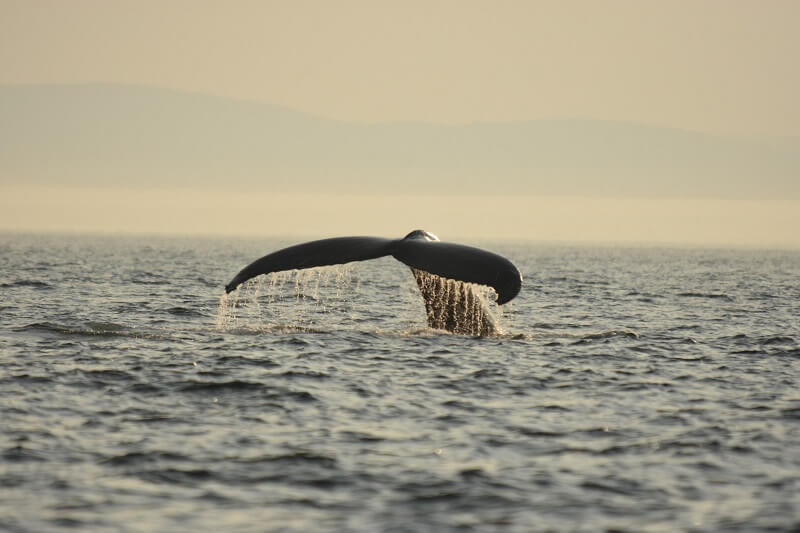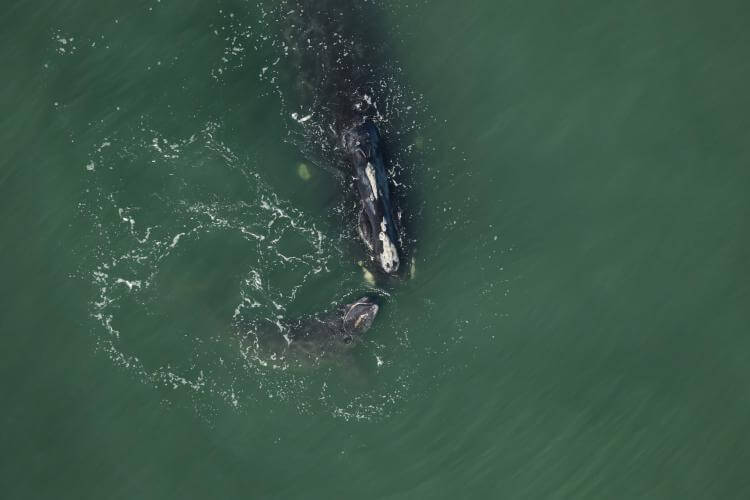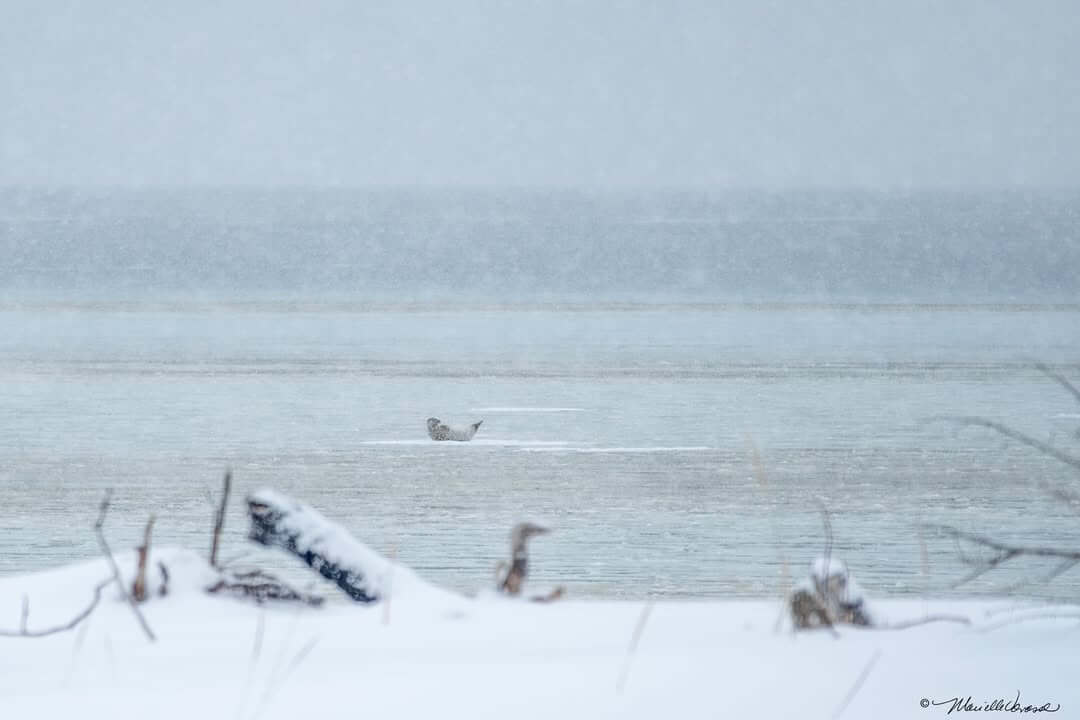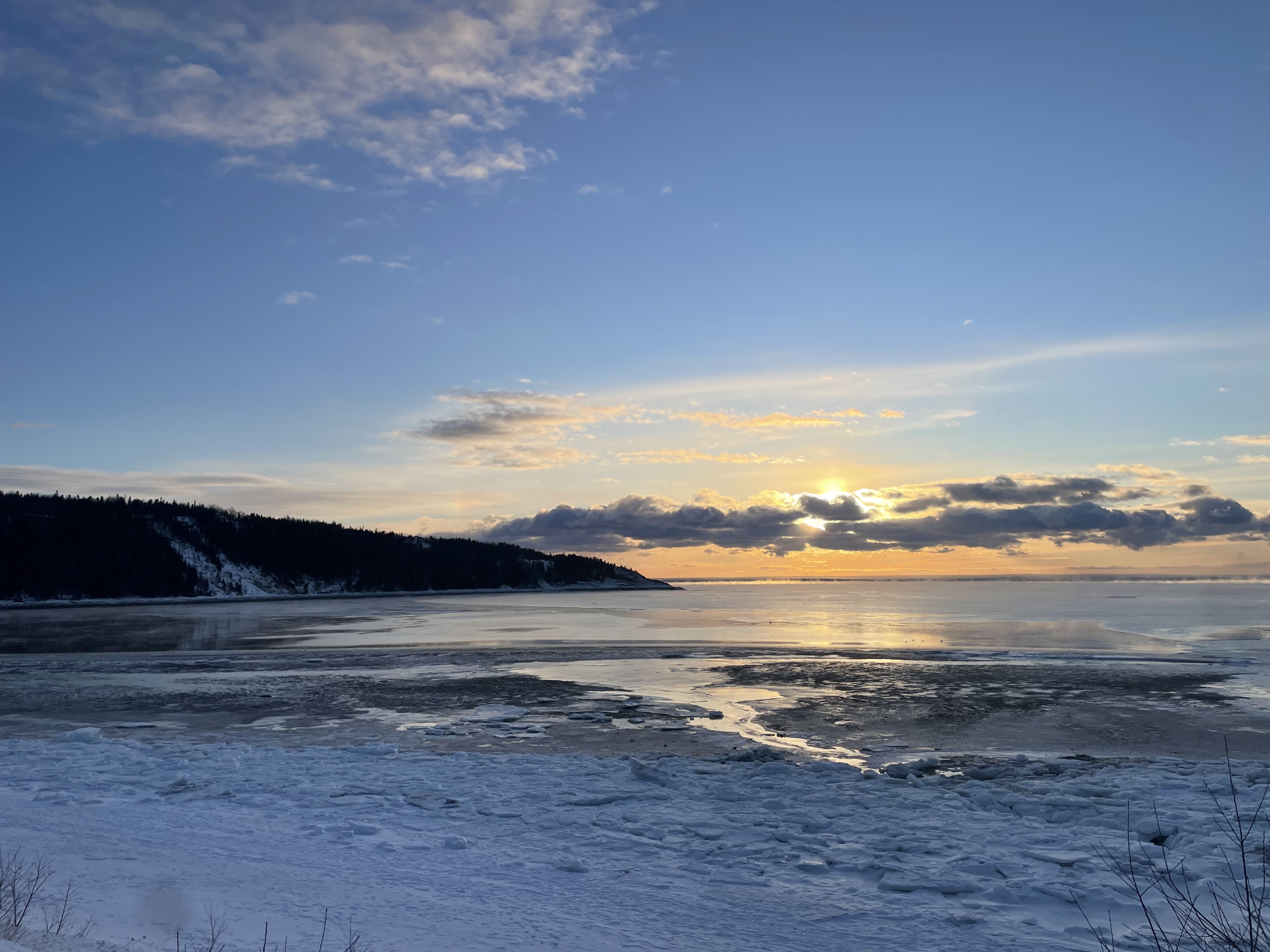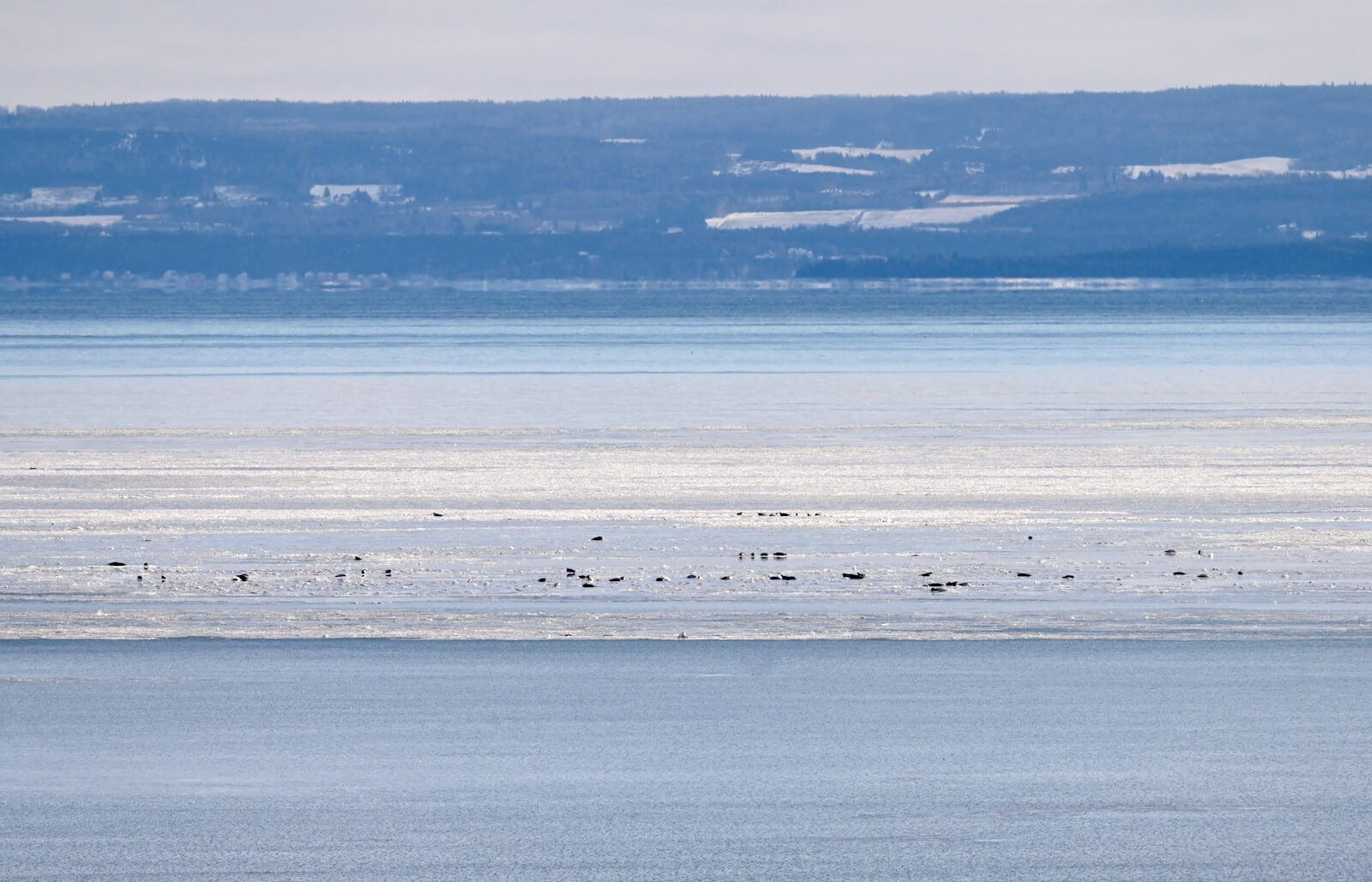So many pinnipeds in this chilly week of February! That’s what several observers from the Côte-Nord region have been telling us, including mariner Jacques Gélineau. Jacques saw a group of a hundred or so harp seals feeding near the shores of Longue-Pointe-de-Mingan. And he’s not the only one whose gaze has landed on a large gathering of seals. “I stopped in Franquelin to take in the sunset and saw hundreds of seals at the bottom of the cliff. Wow!” exclaims one local resident. Not far from there, in Gallix, another observer also had the chance to watch these marine mammals on the horizon. “There were at least thirty seals resting on blocks of frozen snow,” she reports. Further west, at Cap de Bon-Désir in Les Bergeronnes, the keen eye of photographer Renaud Pintiaux spotted a few harbour seals, grey seals, and a single harp seal.
In terms of whales, however, it’s been dead calm. The presence of a large expanse of ice on the shores of the St. Lawrence complicates the observation of cetaceans during this most inclement time of the year. So how about if we look beyond Quebec and see what’s happening cetacean-wise elsewhere around the globe?
Stateside
As fall draws to a close and the first snowflakes begin to fall, whales leave Canadian waters and head for their wintering grounds, which in the case of certain species are well known. For example, in winter, most North Atlantic right whales take refuge in the warm waters of North and South Carolina, Georgia, and Florida. Females give birth to their young between December and March. Since the start of the 2021-2022 calving season, 13 newborns have been reported. This tally is particularly encouraging for this vulnerable species, whose population now numbers fewer than 350 individuals. Each calf is a ray of hope for the species’ survival.
The seasonal migratory movements of humpback whales are also well known. In recent weeks, several have been observed daily in the Caribbean. Like right whales, mature humpbacks leave for temperate waters to give birth to their calves during the winter. In a few months, these mother-calf pairs will leave their tropical paradise and embark on a perilous journey north, notably toward the St. Lawrence River.
Halfway around the world
This time of year, whales are also abundant off the west coast of Australia. But rather than baleen giants, cetacean lovers have been enjoying encounters with pods of killer whales and pilot whales. Blue whales can be found in these waters only in the months of April and May, while humpbacks frequent the area between May and December.
In Hawaii, a photographer had the chance to capture some unique footage using a drone. In the video, we can observe a humpback whale turning over itself with a dolphin at its side. Were they playing together, or was the rorqual annoyed and performing this manoeuvre in an attempt to drive the dolphin away? Either way, this amazing scene reminds us how wonderful and mysterious cetaceans are.
Do you have an observation to share? Write to us!
Have you seen a marine mammal in the St. Lawrence? Share your sighting and photos with the Whales Online team and its readers by contacting us at [email protected]


